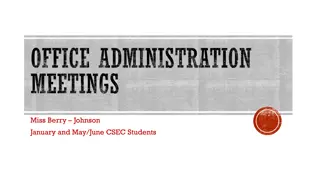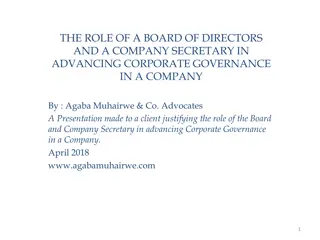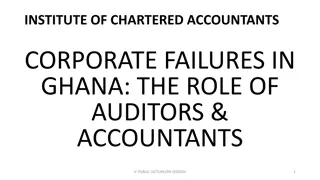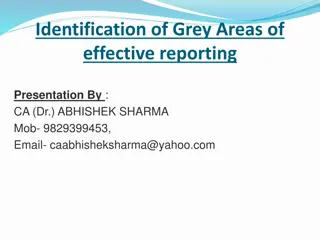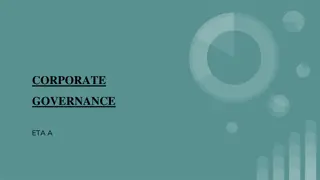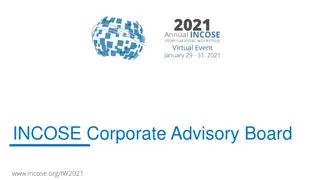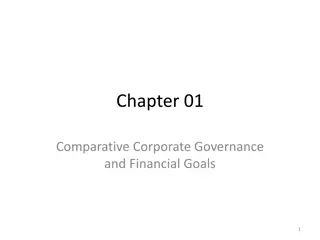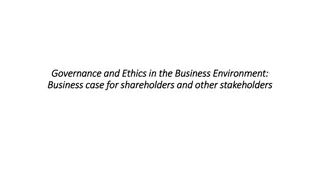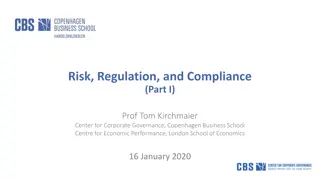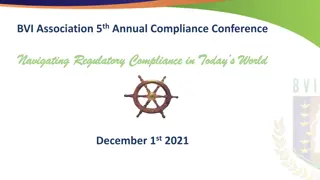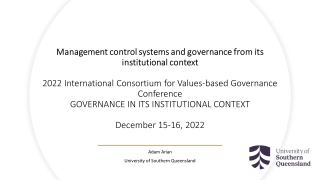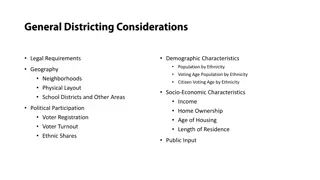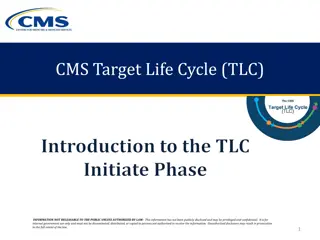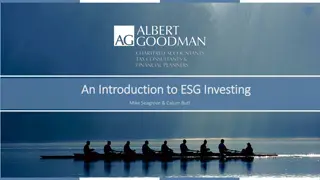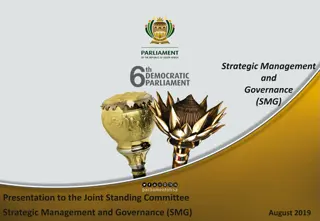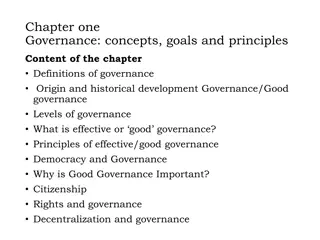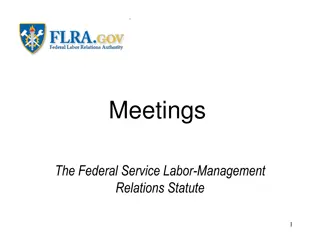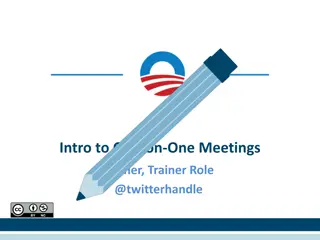Understanding Different Types of Business Meetings in Corporate Governance
Directors of a company hold board meetings to exercise powers and functions efficiently. These meetings ensure effective supervision of the company. Board meeting procedures, quorum requirements, and delegation of powers to committees of directors are discussed. Class meetings for specific shareholder classes are also explained.
Download Presentation

Please find below an Image/Link to download the presentation.
The content on the website is provided AS IS for your information and personal use only. It may not be sold, licensed, or shared on other websites without obtaining consent from the author. Download presentation by click this link. If you encounter any issues during the download, it is possible that the publisher has removed the file from their server.
E N D
Presentation Transcript
WELCOME Class: B.Com Part-2 Subject: Business Regulatory Framework TOPIC: Kinds of Meeting-C: Board Meetings; Meetings of the Committees of Directors; Class meetings., Meetings of creditors, Meetings of debenture-holders Prepared By Dr. SHAHID IQBAL Guest Faculty, Marwari College, Darbhanga, Mobile No. and Whatsup No. : 7004160257 Email ID: shahidlnmu@gmail.com 1
II. Board Meetings- The directors of a company exercise most of their powers in a joint meeting called the meeting of the Board. Section 173 of Companies act 2013[xiii] provide for meeting of board of directors where they exercise their powers and functions. This is to ensure that board of directors supervise the company efficiently. First board meeting The first meeting should be held within 30 days of the incorporation of the company. The board of directors use their expertise and knowledge and discuss strategies to run the company. Time and due date In a year not less than 4 meetings are to be held and not more than 4 months should pass between two meetings. In other words, every board meeting has to be held within 3 months to complete the required provision. 2
Presence of directors The directors are not required to physically present in every meeting, they can be present through other video or audio means. But there may be certain matters which cannot be discussed through video conferencing or audio visual means and in such cases central government may prohibit the use of the same. Also a director can only remain absent if granted permission by the chairman. Notice- Every director has to be pre notified about the meeting at his registered address and notice should be given in not less than 7 days. Moreover the decisions of the meetings are to be notified to directors who were absent from it. If the person responsible for notifying defaults from his duty, he is liable to be penalised. Compliance with the law is ascertained when directors are notified. [xiv] 3
Quorum[xv] A definite number of members or directors have to be present in the meeting according to section 174. The board meeting is to comprise of 1/3 of total members or two directors (whatever is feasible). III. Meetings of the Committees of Directors: The Board of Directors may form certain committees and delegate some of its powers to them. These committees should consist of only directors. The delegation of powers to such committees is to be authorised by the Articles of Association and should be subject to the provisions of the Companies Act. In a large company routine matters like Allotment, Transfer, Finance are handled by sub- committees of the Board of Directors. The meetings of such committees are held in the same way as those of Board Meetings. 4
IV. Class Meetings When the meeting of a particular class of shareholders takes place such as preference shareholder meeting, it is known as class meeting. Such a meeting can be attended only by that class of shareholders. The articles define the procedure for calling such meeting. Such a meeting is called for the alteration in the rights and privileges of the shareholders and for the purpose of conversion of one class of shares into another. Under the Companies Act, class meetings of various kinds of shareholders and creditors are required to be held under different circumstances. Class meetings of the holders of different classes of shares are to be held if the rights attaching to these shares are to be varied. 5
V. Meetings of Creditors: The meetings of creditors are called when the company proposes to make a scheme for arrangement with its creditors. Section, 391 to 393 of the Companies Act not only give powers to the company to compromise with the creditors but also lay down the procedure of doing so. Creditor s meetings- Under section 230[xvi] of the Act, companies can make arrangements with creditors. Such arrangements are often discussed in meeting between the directors, board and creditors. It is known as meeting of creditors. In some cases the judiciary may also play an important role in calling meeting of the creditors[xvii]. 6
VI. Meetings of Debenture Holders: Companies are entitled to issues debentures[xviii] and to implement the same it calls meeting of debenture holders. It is between the board of directors and debenture holders to discuss the rights and responsibilities related to debentures. Meetings of the debenture holders are held according to the conditions contained in the debenture trust deed. These meetings are called from time to time where the interests of debenture holders are involved at the time of reconstruction, reorganisation, amalgamation or winding up of the company. The rules and regulations entered in trust deed relate to the notice of the meeting, appointment of a Chairman of the meeting, passing the resolutions, quorum of the meeting and the writing and signing of minutes. 7


